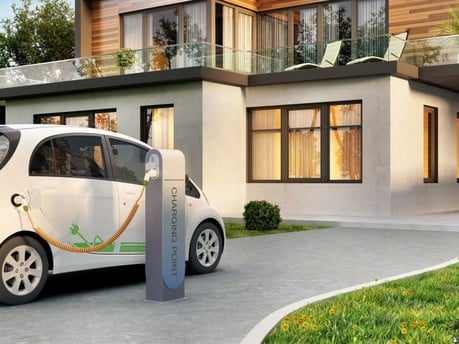Government grants for electric cars
Find out if you can benefit from grants for zero emissions vehicles
Due to ever-rising fuel prices, new research shows that one in five UK motorists aim to make their next car purchase electric.
The Society of Motor Manufacturers and Traders (SMMT) has anticipated that purchases of plug-in electric cars will dominate the new car market by the end of 2022. In fact, March 2022 saw a record surge in electric vehicle (EV) purchases, when over 39,000 plug-in cars were bought during the month.
As well as the environmental benefits and zero fuel costs when owning an electric car, EV consumers can also reap financial rewards thanks to various Government-led incentive schemes.
If you’re considering the transition to a fully electric vehicle, Octane Finance has highlighted the options available to you when helping to keep our roads green…
Low-emission vehicles plug-in grant
The UK Government’s Office for Zero Emission Vehicles (OZEV) (previously known as the Office for Low Emission Vehicles) is managed by the Department for Transport and responsible for various grant schemes.
Designed to help cover the cost of buying an electric vehicle, up to a maximum of £1,500 is currently available to consumers via vehicle dealerships. The grant will pay for up to 35% of the overall purchase price and is automatically applied at purchase.
But, there are some restrictions when it comes to electric car eligibility; to qualify, cars will need to be able to travel at least 70-miles (112km) on a single charge, have zero tailpipe emissions, and a recommended retail price (RRP) under £32,000 including VAT and any associated delivery fees.
Eight categories in total cover a wide range of vehicles eligible for a low-emission vehicles plug-in grant, these are; cars, wheelchair accessible vehicles, motorcycles, mopeds, small vans, large vans, taxis, and trucks.
Electric cars eligible for a low-emission vehicle plug-in grant
Electric cars are classed as ‘category 1’ vehicles and include the following models:
- Citroën e-Berlingo
- Citroën e-C4
- Citroën e-Spacetourer
- Fiat 500e
- Fiat 500e Convertible
- Hyundai IONIQ Electric
- Hyundai KONA Electric
- Mazda MX-30
- MG MG5 EV
- MG ZS EV
- MINI Electric
- Nissan e-NV200
- Nissan Leaf
- Peugeot e-208
- Peugeot e-Rifter
- Renault ZOE
- Smart EQ fortwo
- Smart EQ forfour
- SsangYong Korando eMotion
- Vauxhall Combo-e Life
- Vauxhall Corsa-e
- Vauxhall Mokka-e
- Vauxhall Vivaro-e Life
- Volkswagen e-up!
- Volkswagen ID.3
But it’s not just the purchase of an electric car the Government is actively supporting consumers with, OZEV also issues grants for the installation of electric vehicle chargers too.
Below, we explain exactly what electric charger grants are available to you right now…
EV chargepoint grant
As an electric car owner, you’ll need to have access to a chargepoint. The good news if you live in a flat or rented accommodation is that you are eligible for an EV chargepoint grant - this replaces the original Electric Vehicle Homecharge Scheme (EVHS) which was open to all homeowners until March 2022.
To qualify for the EV chargepoint grant, customers must:
- Own a flat or live in rented accommodation
- Confirm ownership of the property, or if rented, confirm details of the person or company letting the property
- Only claim for one chargepoint, even if they own a second electric vehicle
Recognising that many electric car owners will need to charge their vehicle at home, OZEVs EV chargepoint grant will provide a 75% contribution towards the cost of a standard chargepoint and its installation, up to the price of £350 (including VAT).
Workplace Charging Scheme
However, it’s not just homeowners and renters being offered an electric vehicle incentive, as businesses are also being encouraged to reward their green-thinking employees.
Thanks to the Workplace Charging Scheme (WCS), businesses can apply for vouchers that will help towards the costs of installing electric vehicle chargepoints on their premises. The scheme is in place to support all types of businesses - including charities and public sector organisations - based in England, Wales, Scotland, and Northern Ireland, but is not currently available to businesses in the Channel Islands or Isle of Man.
Run by OZEV with support from the Driver and Vehicle Licensing Agency (DVLA), just like the EV chargepoint grant, the WCS grant provides a 75% contribution towards the cost of a standard chargepoint, capped at £350 per socket. Each business is able to apply for up to 40 sockets across all premises.
Still not convinced an electric car is for you? Take a look at our dedicated Benefits of buying an electric vehicle blog which explores the many reasons why drivers are opting to go green.

